Filter by

Thinking like a Mall: Environmental Philosophy after the End of Nature
A provocative argument that environmental thinking would be better off if it dropped the concept of ""nature"" altogether and spoke instead of the built environment.OCLC-licensed vendor bibliographic record.
- Edition
- -
- ISBN/ISSN
- 9780262326988
- Collation
- 1 online resource (x, 283 pages) :illustrations
- Series Title
- -
- Call Number
- -

Blaming Islam
Why fears about Muslim integration into Western society--propagated opportunistically by some on the right--misread history and misunderstand multiculturalism.OCLC-licensed vendor bibliographic record.
- Edition
- -
- ISBN/ISSN
- 9780262301855
- Collation
- 1 online resource (xi, 121 pages).
- Series Title
- -
- Call Number
- -
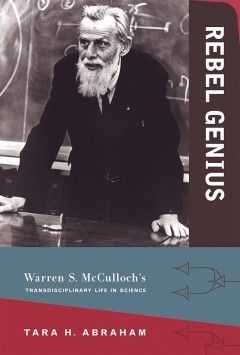
Rebel Genius: Warren S. McCulloch's Transdisciplinary Life in Science
"The book is a scientific biography of American neurophysiologist and cybernetician Warren S. McCulloch, one that places his life and work in historical context. By focusing on the various identities that he assumed throughout his life's major work--the study of the brain and mind--the book examines the intermingling of McCulloch's professional and personal worlds, and by doing so provides a mu…
- Edition
- -
- ISBN/ISSN
- 9780262335386
- Collation
- 1 online resource (xiii, 305 pages) :illustrations
- Series Title
- -
- Call Number
- -
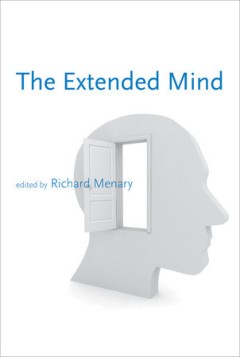
The extended mind
Leading scholars respond to the famous proposition by Andy Clark & David Chalmers that cognition & mind are not located exclusively in the head.OCLC-licensed vendor bibliographic record.
- Edition
- -
- ISBN/ISSN
- 9780262266024
- Collation
- 1 online resource (viii, 382 pages).
- Series Title
- -
- Call Number
- -

The Elm and the Expert: Mentalese and Its Semantics
"A Bradford book."OCLC-licensed vendor bibliographic record.
- Edition
- -
- ISBN/ISSN
- 0585020515
- Collation
- 1 online resource (xii, 128 pages) :illustrations.
- Series Title
- -
- Call Number
- -
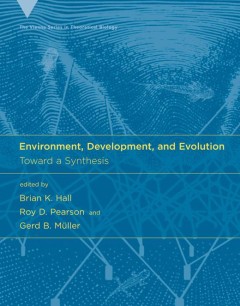
Environment, Development, and Evolution: Toward a Synthesis
Leading researchers in evolutionary developmental biology seek linkages between, and a synthesis of, development, physiology, endocrinology, ecology, and evolution.Evolutionary developmental biology, also known as evo-devo or EDB, seeks to find links between development and evolution by opening the "black box" of development's role in evolution and in the evolution of developmental mechanisms. …
- Edition
- -
- ISBN/ISSN
- 9780262274753
- Collation
- 1 online resource (xxiii, 304 pages) :illustrations.
- Series Title
- -
- Call Number
- -
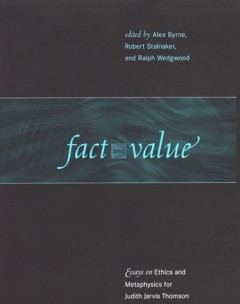
Fact and value :essays on ethics and metaphysics for Judith Jarvis Thomson
"A Bradford book."A diverse collection of essays, which reflect the breadth of Judith Jarvis Thomson's philosophical work.The diversity of topics discussed in this book reflects the breadth of Judith Jarvis Thomson's philosophical work. Throughout her long career at MIT, Thomson's straightforward approach and emphasis on problem-solving have shaped philosophy in significant ways. Some of the bo…
- Edition
- -
- ISBN/ISSN
- 9780262269612
- Collation
- 1 online resource (viii, 236 pages)
- Series Title
- -
- Call Number
- -

Fatigue as a window to the brain
"A Bradford book."AnnotationOCLC-licensed vendor bibliographic record.
- Edition
- -
- ISBN/ISSN
- 9780262271448
- Collation
- 1 online resource (xx, 336 pages) :illustrations.
- Series Title
- -
- Call Number
- -
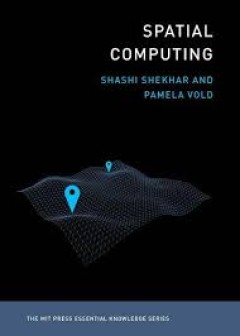
Spatial computing
An accessible guide to the ideas and technologies underlying such applications as GPS, Google Maps, Pok?emon Go , ride-sharing, driverless cars, and drone surveillance. Billions of people around the globe use various applications of spatial computing daily--by using a ride-sharing app, GPS, the e911 system, social media check-ins, even Pok?emon Go . Scientists and researchers use spatial comput…
- Edition
- -
- ISBN/ISSN
- 9780262356800
- Collation
- 1 online resource (256 pages).
- Series Title
- -
- Call Number
- -

Truth in Husserl, Heidegger, and the Frankfurt school :critical retrieval
An innovative, ambitious, tradition-crossing study drawing on the work of Husserl, Heidegger, Horkheimer, Adorno, and Habermas to propose a new and transformative concept of truth. The idea of truth is a guiding theme for German continental philosophers from Husserl through Habermas. In this book, Lambert Zuidervaart examines debates surrounding the idea of truth in twentieth-century German con…
- Edition
- -
- ISBN/ISSN
- 9780262340441
- Collation
- 1 online resource (256 pages)
- Series Title
- -
- Call Number
- -
 Computer Science, Information & General Works
Computer Science, Information & General Works  Philosophy & Psychology
Philosophy & Psychology  Religion
Religion  Social Sciences
Social Sciences  Language
Language  Pure Science
Pure Science  Applied Sciences
Applied Sciences  Art & Recreation
Art & Recreation  Literature
Literature  History & Geography
History & Geography